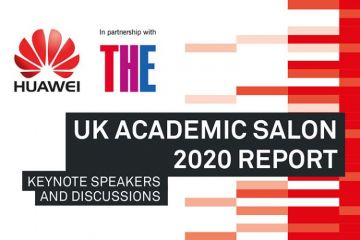Making it easier to let alternative providers into a fully operational higher education marketplace and throwing out those who can’t keep up is the best thing for students, right? This is the justification for giving all those powers to the Office for Students under the Higher Education and Research Bill.
So I thought I would spend an August week having a closer look at alternative providers.
It is not hard to put the story of present providers together from online sources: the Higher Education Funding Council for England’s invaluable easy-search register, showing all the validation and subcontracting arrangements; the Quality Assurance Agency’s published reviews, with annual monitoring checks required since 2014; and Companies House, with its tales of one-man businesses, single shareholders and profit-taking – although with its consistent acceptance of unaudited, abbreviated, small company accounts for alternative providers.
Then there is the list of providers that had their course designation suspended in November 2013. These were selectively fingered by the Department for Business, Innovation and Skills (BIS) because they had expanded to a vast size and had students taking out taxpayer-funded loans as if there was no tomorrow. At the time, then universities minister David Willetts told the House of Commons that this was “unaffordable, given the need to control public spending”.
Add to that the list of providers investigated by the National Audit Office in its report of December 2014. These were found to be admitting students not equipped for the course by prior study or adequate English, who then dropped out early or never actually appeared at all. Completion rates were poor even for legitimate students who had taken out Student Loan Company loans.
You wonder whether the authors of the White Paper carried out this simple desk-based cross-checking exercise. The Public Accounts Committee Report of February 2015 vigorously told the government off for failing to look properly at the risks before launching so energetically into alternative provider expansion. It could hardly say that it had not been warned.
Perhaps ministers will say that they are only anxious to promote the interests of the “high-quality” alternative providers, and to fast-track their acquisition of degree-awarding powers and the university title, rather than the “room over a shop” colleges with websites full of hyperbole and promises?
Only seven alternative providers have so far made it to degree-awarding powers and university or university college title. Of the newcomers to this list, three were speedily bought up by non-UK purchasers. This has raised questions about change of identity and legal form and whether such things can simply be bought.
In 2009, the Office of Fair Trading conducted a merger inquiry (now to be found on the Competition and Markets Authority website) when Apollo Global Inc bought BPP. The finding was that Apollo was not providing such services in the UK or within Europe, so there would be no effect on UK competition.
Global University Systems has since bought two of the providers previously found by the NAO and the QAA to have unsatisfactory reputations: St Patrick’s College and the London School of Business and Finance. It also now owns the University of Law, previously a charity, which passed through the hands of Montagu Private Equity in 2012 immediately upon gaining university title.
Devalue and degrade the prestige of the title “university” like this and there could be much to lose.
Gill R. Evans is emeritus professor of medieval theology and intellectual history at the University of Cambridge.
Register to continue
Why register?
- Registration is free and only takes a moment
- Once registered, you can read 3 articles a month
- Sign up for our newsletter
Subscribe
Or subscribe for unlimited access to:
- Unlimited access to news, views, insights & reviews
- Digital editions
- Digital access to THE’s university and college rankings analysis
Already registered or a current subscriber?










